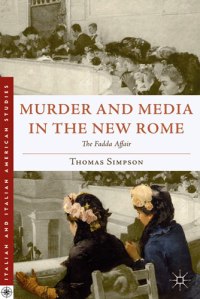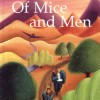 Dr. Thomas Simpson is a Distinguished Senior Lecturer in Italian at Northwestern University and the author of the recent book Murder and Media in the New Rome: The Fadda Affair. Meticulously researched in the libraries and archives of Italy, his book offers a fascinating exploration of “a sensational crime and trial that took place in Rome in the late 1870’s, when the bloody killing of a war hero triggered a national spectacle.” On Thursday, January 31st at 7 p.m., you can hear Dr. Simpson discuss and read from Murder and Media in the New Rome when he visits EPL’s 1st Floor Community Meeting Room as part of the Evanston Northwestern Humanities Lecture Series. In anticipation of his visit, we recently spoke with him via email about how the Fadda Affair fits into the whole of Italian history, how newspapers helped enflame the scandal, the role of Roman women in the spectacle, and the best novels about the “Risorgimento” period.
Dr. Thomas Simpson is a Distinguished Senior Lecturer in Italian at Northwestern University and the author of the recent book Murder and Media in the New Rome: The Fadda Affair. Meticulously researched in the libraries and archives of Italy, his book offers a fascinating exploration of “a sensational crime and trial that took place in Rome in the late 1870’s, when the bloody killing of a war hero triggered a national spectacle.” On Thursday, January 31st at 7 p.m., you can hear Dr. Simpson discuss and read from Murder and Media in the New Rome when he visits EPL’s 1st Floor Community Meeting Room as part of the Evanston Northwestern Humanities Lecture Series. In anticipation of his visit, we recently spoke with him via email about how the Fadda Affair fits into the whole of Italian history, how newspapers helped enflame the scandal, the role of Roman women in the spectacle, and the best novels about the “Risorgimento” period.
An Interview with Dr. Thomas Simpson
January 26, 2013


